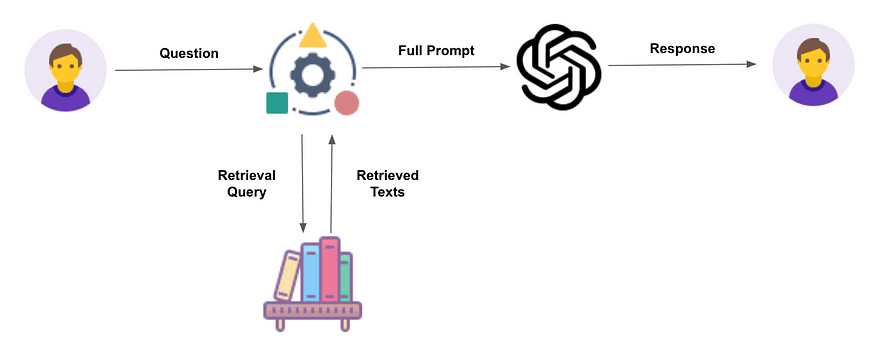
Hypothetical Retrieval-Augmented Generation (Hypothetical RAG): Advancing AI for Enhanced Contextual Understanding and Creative Problem-Solving
Title
Hypothetical Retrieval-Augmented Generation (Hypothetical RAG): Advancing AI for Enhanced Contextual Understanding and Creative Problem-Solving
Author
1. Chaitanya Patel, Student, Conestoga College Institute of Technology and Advanced Learning, Kitchener, Canada
Abstract
The advancement of artificial intelligence (AI) has introduced Retrieval-Augmented Generation (RAG), which improves response generation by incorporating retrieved documents from a corpus. Hypothetical Retrieval-Augmented Generation (Hypothetical RAG) expands this concept by integrating hypothetical or additional contextual information that might not be directly available in the retriever's corpus. This paper examines the significance of Hypothetical RAG, highlighting its potential to address ambiguity, facilitate exploratory analysis, and enhance creative content generation. Hypothetical RAG is handy in handling ambiguous or poorly defined queries by generating responses based on possible scenarios or interpretations. This capability makes it valuable for exploratory analysis, allowing researchers to consider various hypothetical situations and make informed decisions.
Additionally, Hypothetical RAG supports creative writing by providing diverse ideas and content based on hypothetical contexts, fostering innovation and creativity. Its applications extend to scenario planning, which generates responses based on different future scenarios and complex decision-making, offering insights and suggestions based on hypothetical situations. Overall, Hypothetical RAG demonstrates transformative potential across various domains by enhancing AI systems' contextual understanding and problem-solving abilities.
Keywords
Conclusion
Hypothetical Retrieval-Augmented Generation (Hypothetical RAG) signifies a notable advancement in artificial intelligence, addressing the limitations of traditional RAG by incorporating hypothetical contexts and additional information beyond the existing corpus. This enhancement enables AI systems to effectively handle ambiguous and poorly defined queries, offering nuanced and comprehensive responses. Hypothetical RAG's capacity to facilitate exploratory analysis and support creative content generation highlights its versatility and potential impact across various domains. Its applications in scenario planning, creative writing, and complex decision-making underscore its transformative potential, providing valuable insights and innovative solutions. As AI technology advances, Hypothetical RAG is poised to play a crucial role in enhancing contextual understanding and problem-solving capabilities. This evolution will empower AI systems to deliver more insightful and multifaceted responses, driving research, planning, and creative progress. The integration of hypothetical contexts represents a significant step forward, promising to unlock new possibilities and applications in the ever-expanding field of artificial intelligence.
Author Contrubution
The author takes full responsibility for the entire study process, including design, data collection, analysis, and manuscript writing.
Funding
No grants from public, commercial, or non-profit funding agencies supported the research, authorship, or publication of this article.
Conflict of Interest
No conflicts of interest are reported by the authors.
Data Sharing Statement
There are no data available for sharing in this work.
Software And Tools Use
This article does not include any software or tools usage information.
Acknowledgements
My gratitude goes to those who assisted in this study and manuscript preparation, and to the anonymous reviewers for their constructive insights.
Corresponding Author
Chaitanya Patel
Conestoga College Institute of Technology and Advanced Learning, Kitchener, Student, Canada
Copyright
Copyright: ©2026 Corresponding Author. This is an open access article distributed under the terms of the Creative Commons Attribution License , which permits unrestricted use, distribution, and reproduction in any medium, provided the original author and source are credited.
Patel, Chaitanya. “Hypothetical Retrieval-Augmented Generation (Hypothetical RAG): Advancing AI for Enhanced Contextual Understanding and Creative Problem-Solving.” Scientific Research Journal of Science, Engineering and Technology, vol. 2, no. 1, 2024, pp. 1-4, https://isrdo.org/journal/SRJSET/currentissue/hypothetical-retrieval-augmented-generation-hypothetical-rag-advancing-ai-for-enhanced-contextual-understanding-and-creative-problem-solving
Patel, C. (2024). Hypothetical Retrieval-Augmented Generation (Hypothetical RAG): Advancing AI for Enhanced Contextual Understanding and Creative Problem-Solving. Scientific Research Journal of Science, Engineering and Technology, 2(1), 1-4. https://isrdo.org/journal/SRJSET/currentissue/hypothetical-retrieval-augmented-generation-hypothetical-rag-advancing-ai-for-enhanced-contextual-understanding-and-creative-problem-solving
Patel Chaitanya, Hypothetical Retrieval-Augmented Generation (Hypothetical RAG): Advancing AI for Enhanced Contextual Understanding and Creative Problem-Solving, Scientific Research Journal of Science, Engineering and Technology 2, no. 1(2024): 1-4, https://isrdo.org/journal/SRJSET/currentissue/hypothetical-retrieval-augmented-generation-hypothetical-rag-advancing-ai-for-enhanced-contextual-understanding-and-creative-problem-solving
1301
Total words538
Unique Words61
Sentence20.573770491803
Avg Sentence Length0.50311280249805
Subjectivity0.12037470725995
PolarityText Statistics
Viewed / Downloads
Total article views: 221 (including HTML, PDF, and XML)| HTML | XML | Total | |
|---|---|---|---|
| 147 | 31 | 43 | 221 |
Viewed (geographical distribution)
Thereof 221 with geography defined and 0 with unknown origin.